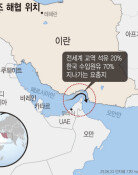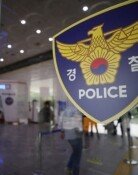Foreign Minister Ban Says Farewell
Foreign Minister Ban Says Farewell
Posted November. 13, 2006 10:50,
My work as U.N. Secretary-General will be most effective when Korean people live with their heart in Korea, but their eyes toward the world.
This is the message that Ban Ki-moon, the next Secretary-General of the U.N., left on November 10 as he said farewell to the Ministry of Foreign Affairs and Trade, where he has worked for 37 years.
Bans work as the minister of foreign affairs and trade for 34 months included visiting 111 countries, a 357-day overseas stay, and 374 meetings with foreign chiefs. He heads to New York on November 15 to begin work on the transition.
Ban emphasized his pride as a Korean in his farewell speech in the National Assembly and at the ministry.
The diplomatic victory of being elected U.N. Secretary-General is based on blood, sweat, and tears shed by our people in their struggle to overcome trials. The honor should go to all the Korean people who love their fatherland, said Ban.
Mr. Ban added, If we Koreans are only satisfied with domestic success, we will remain as frogs in the well. It is time for Koreans to expand our thinking into the world stage and to approach international standards in many aspects. He also emphasized, This will be possible only when we have respect and pride in ourselves as our foundation.
He continued, I have some regrets over the resolution of the North Korean nuclear crisis and the introduction of a multi-party security system in Northeast Asia. Now as I leave Korea as an international public servant, I feel overwhelmed by the sense of loss.
The Ministry distributed copies of Bans speech in advance and had to make changes later. The original copy said, The Ministry may damage national interest or diplomatic effects when swayed by populism. The sentence was dropped as some pointed out that the term populism might cause a misunderstanding of targeting the current government.
Ban instead said in the revised copy, There is difficulty in handling foreign affairs as voters express different opinions in the process of democratization, but we need the leadership to relate the governments big plans on foreign affairs to the national interest, while also seeking the peoples understanding.
weappon@donga.com





![[단독]“두건 쓴 무장경비대 길목마다 검문…택시로 20시간 달려 탈출”](https://dimg.donga.com/c/138/175/90/1/wps/NEWS/IMAGE/2026/03/05/133470282.1.jpg)

